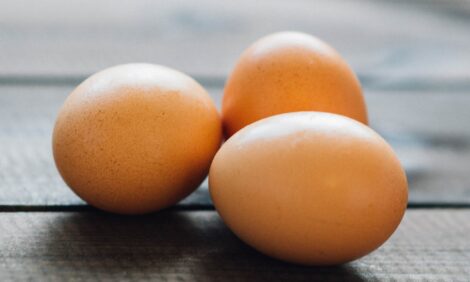



Govt Puts Ivorian Industry on Road to Recovery
IVORY COAST - Across West Africa, imports of frozen chicken parts have forced many local producers out of business but in Ivory Coast, a policy change is helping to revive the poultry industry.Ivorian poultry producers are enjoying strong growth thanks to the imposition of a tax on imports of poultry products from the European Union and South America, reports IPS News.
Five years ago, the Ivorian poultry industry was under strong competition from imported products flooding the local market. Poultry production, on which the livelihoods of a million people in Côte d'Ivoire depend directly or indirectly, suffered multiple blows beginning in the 1990s.
A Food and Agriculture Organisation review of import surges reported that 2003 production of 7,500 tonnes was almost one-third lower than in 1997; imports grew during the same period from 1,815 tonnes to 17,226. Poultry industry association IPRAVI (the Interprofession avicole de Côte d'Ivoire) says 1,500 producers went out of business, taking as many as 15,000 jobs with them. Farmers who were growing maize and other crops for animal feed were also affected.
As policies aimed at self-sufficiency were abandoned in the late 1990s, there was a shift towards consumption of imported food. In line with a general liberalisation of trade policy, government lowered or eliminated import duty on many foodstuffs; free import licences for poultry were granted in 2002, coinciding with an effort to avoid food shortages as agricultural production was hit by the outbreak of civil war.
In 2005, the Ivorian government imposed a new tax on imported poultry by-products. With this measure, the price per kilo for products imported from Europe or Latin America rose from 500 to 1,000 FCFA (doubling to roughly $2 per kilo). The goal was to discourage imports and increase local production.
IPRAVI president, Philippe Ackah, told IPS: "Since then we've been able to hold our own against fierce competition from the imports. And we're also happy to note that this policy didn't cause the slightest shortage or price hike in the cost for chicken or eggs on the national market."
On a poultry farm in Abatta, in southeastern Côe d'Ivoire, Charles Koné is chatting with his feed supplier, Amadou Koné Traoré. Mr Traoré takes an order for 100,000 CFA francs (XOF; US$220) worth of maize and cottonseed meal for the chickens.
He said: "I've been supplying different farms in the area for three years, to our mutual benefit. Thanks to my ten acres (four hectares) of corn and three acres of cotton."
He explains that his yearly sales went up from around $1,110 in 2005 to $8,890 in 2009. He expects to reach $13,330 by the end of 2010. Around the country, throughout the production chain for poultry, similar growth is being reported.
"We're more comfortable with local suppliers who have the most affordable rates, whereas before we were paying three times more to importers," says poultry farmer, Ettien Koffi.
He told IPS: "It's a pity the government didn't act sooner to support this industry which plays such a key role in the rural economy. It would have developed very rapidly and created a number of jobs across the country."
Mr Koffi sells 100 chickens a day from his operation in Anyama, just north of the economic capital of Abidjan.
He said: "Local production has surpassed imported chickens." According to him it is a consequence of the government's decision to support the industry.
According to Mr Ackah, the new tax saw investment in the poultry industry increase by nearly $11 million over four years. The result is that from producing 9,000 tonnes of poultry in 2005, the industry expanded to 20,000 tons in 2009 and a total value of $110 million. Egg production reached 800 million versus 435 million over the same period, with approximately 39,000 new jobs created.
Moreover, Mr Ackah adds, the industry generated $31.5 million-worth of sales for maize and other bird feed for producers between 2005 et 2009.
The Ivorian government, responding to input from the poultry producers, announced in January that it would maintain the import duties, according to IPS.
Alain Bouabré, an Abidjan-based economist, said: "This regulation saved the Ivorian poultry industry from ruin. Only a few years ago despair was gaining ground and producers were without options.
"The industry was on the verge of total collapse when the measure went through. Now the industry should get better organised to truly benefit from the situation. It's simply a matter of time before importers find a way around the policy and regain a footing on the market."
The poultry industry has announced an additional investment of $315 million, and the creation of 10,000 additional jobs. They hope to benefit from further tax advantages.











